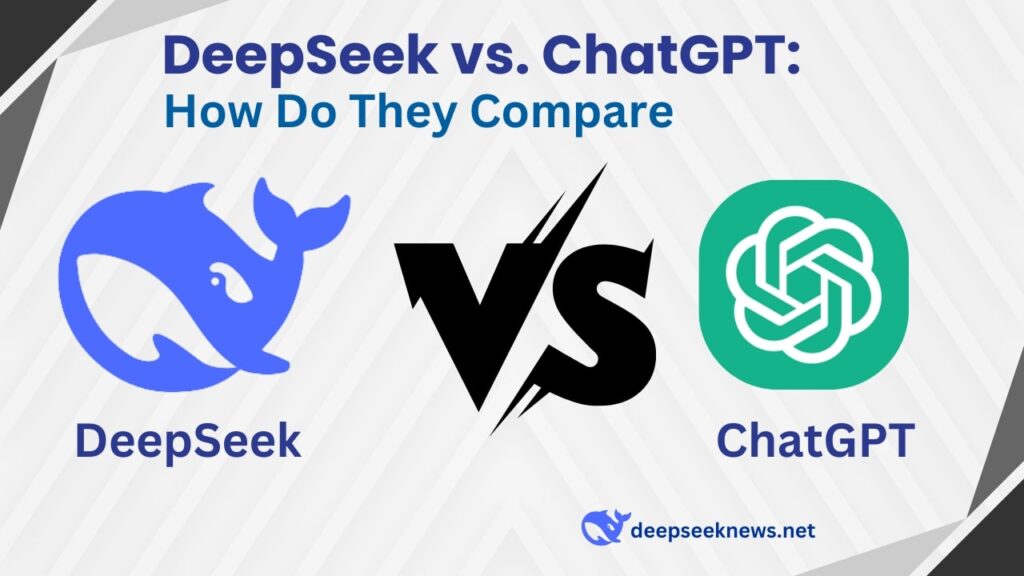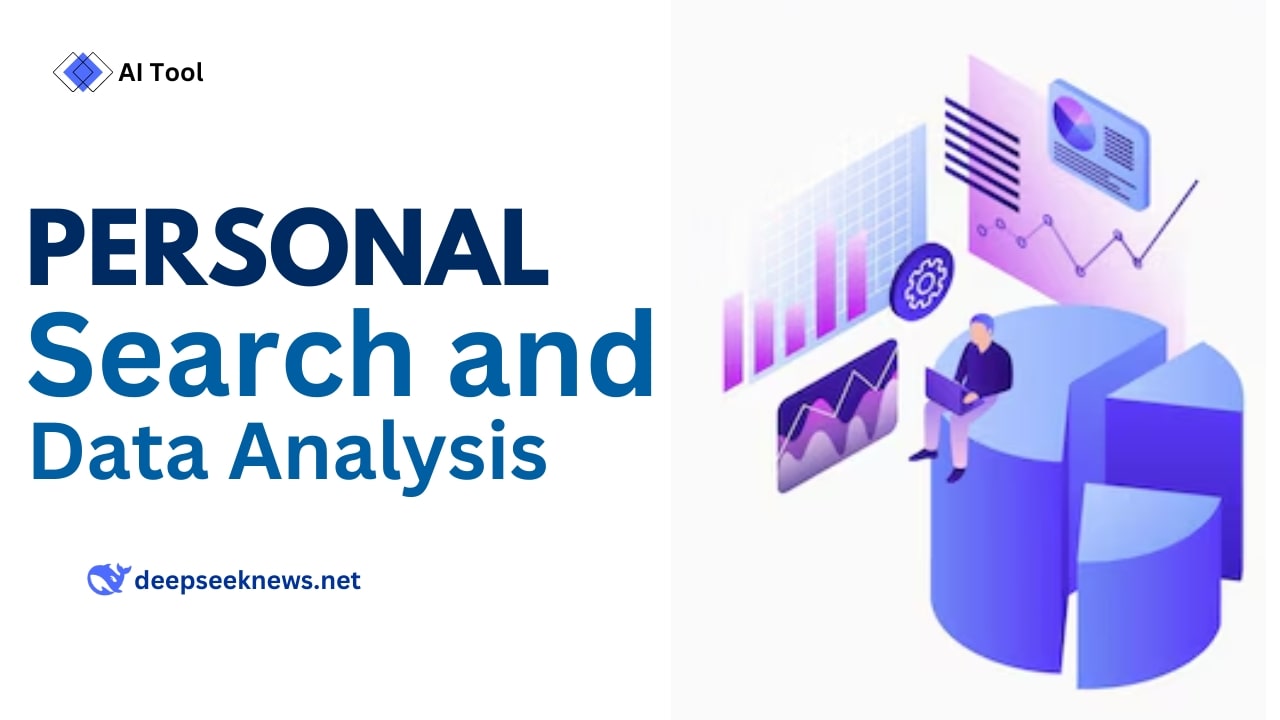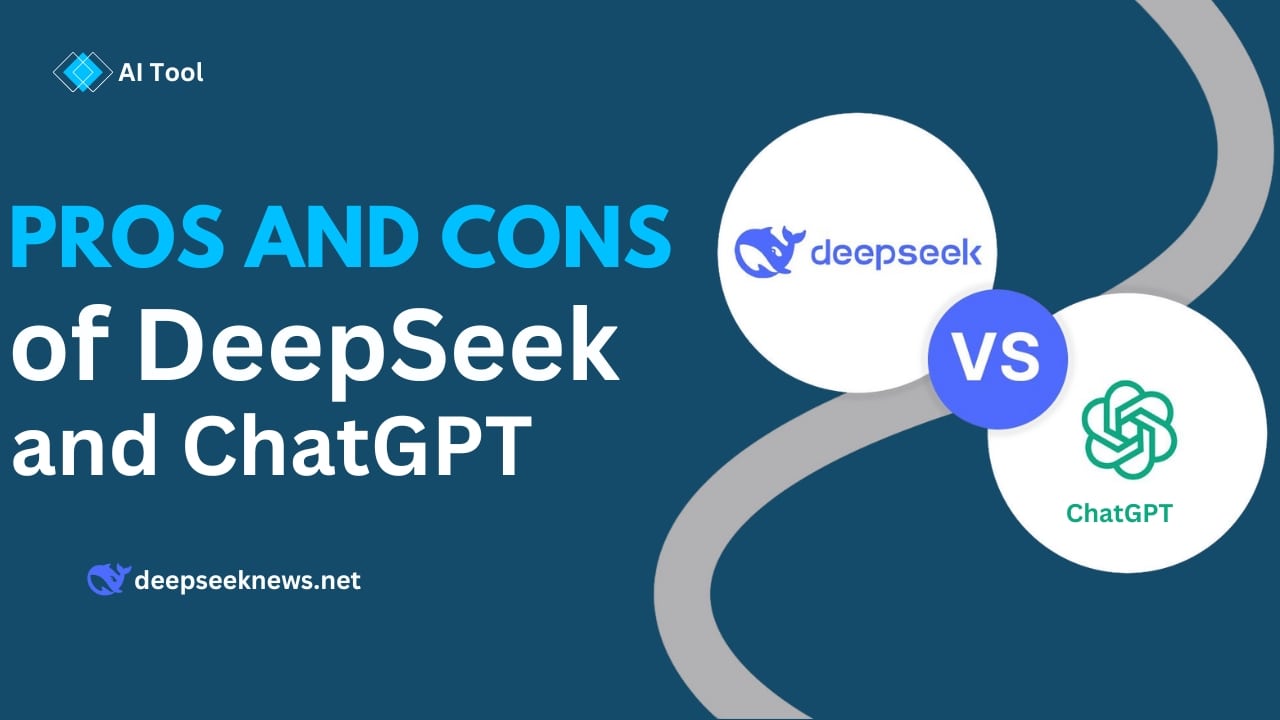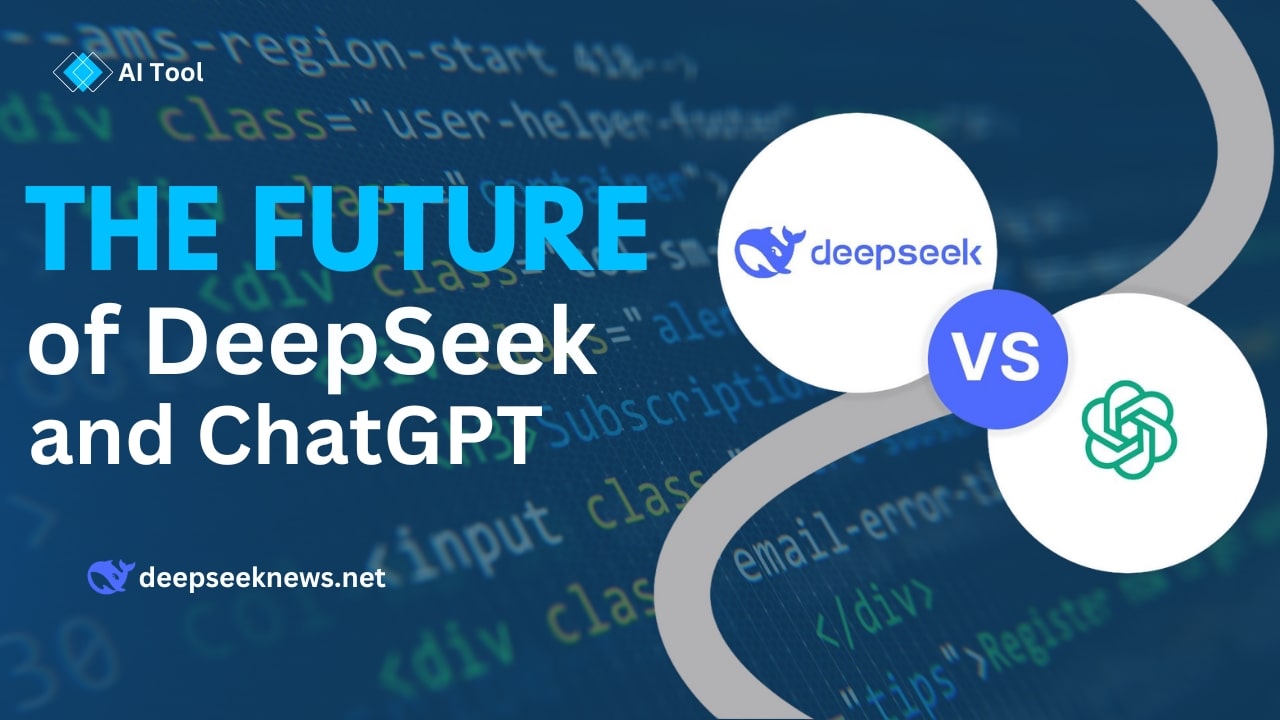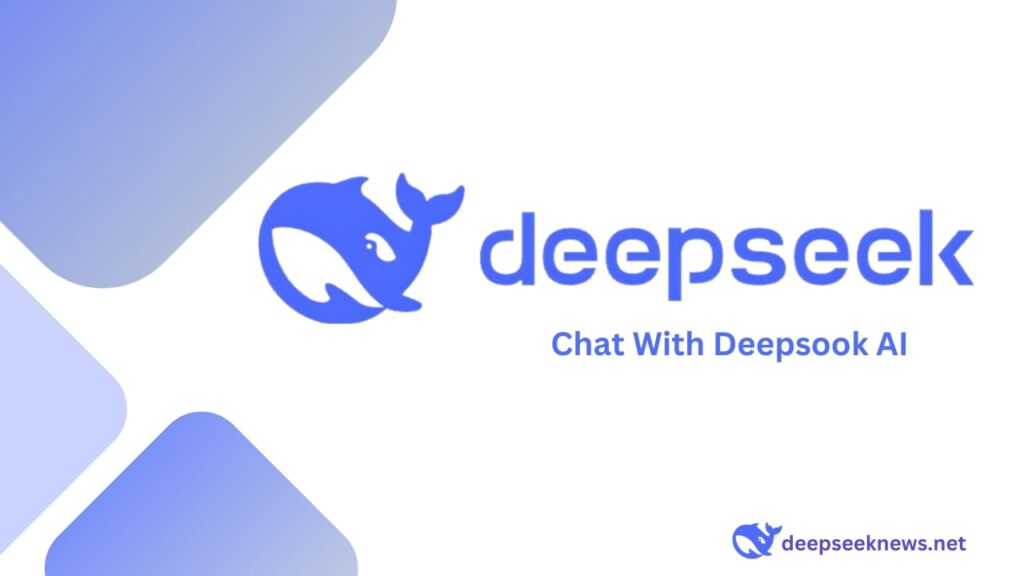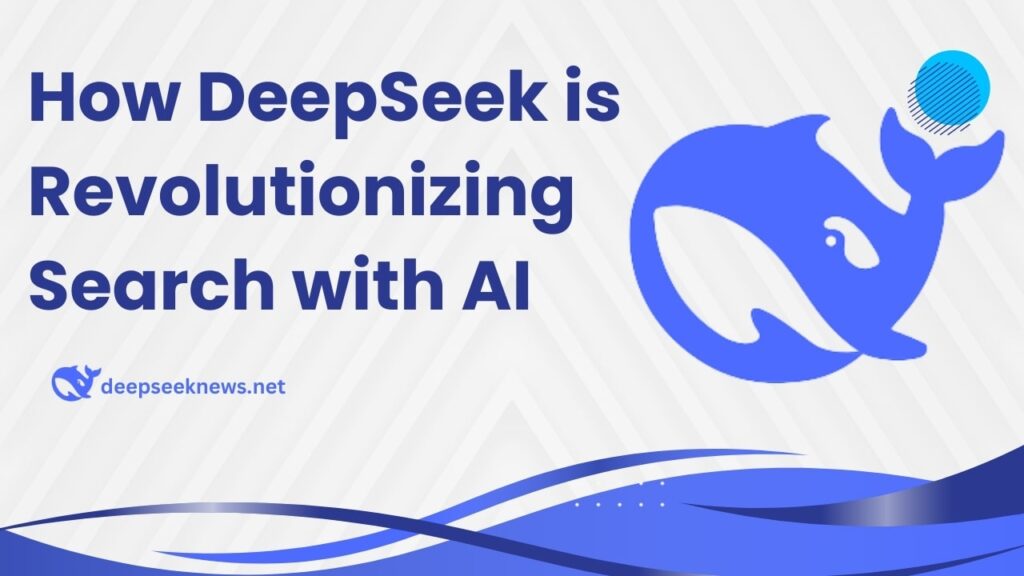Artificial intelligence (AI) is transforming how we interact with technology, and two standout tools in this space are DeepSeek and ChatGPT. Both are powered by advanced AI, but they serve different purposes. How do they compare, and which one is right for you? Let’s break it down, including how they handle personal search and data analysis.
Purpose and Functionality
The main difference between the advanced search model and the AI conversation model lies in their purpose. The advanced search model is focused on search and data analysis. It helps users find information and analyze it to uncover trends or insights. The AI conversation model, on the other hand, is focused on generating text. It creates responses based on the input it receives, making it better for creative tasks or explanations.
For example, if you ask DeepSeek, “What are the latest trends in renewable energy?” it will provide a list of sources, data, and trends. If you ask ChatGPT the same question, it will generate a detailed explanation but may not provide specific data points unless trained on recent information.
Speed and Accuracy
When it comes to speed, DeepSeek has the edge. It’s designed to deliver results in seconds, making it ideal for quick searches and data analysis. ChatGPT, while fast, is more focused on generating detailed responses, which can take longer, especially for complex queries.
In terms of accuracy, the advanced search tool excels at finding precise information, whereas the AI assistant is better suited for contextual explanations. However, ChatGPT’s responses can sometimes be verbose or include unnecessary details. As DeepSeek CEO Liang Wenfeng explains, the search engine prioritizes creativity while ensuring reliable search results.
Personal Search and Data Analysis
One area where DeepSeek stands out is personal search and data analysis. It can analyze your search history and preferences to deliver personalized results. For example, if you often look for tech news, it will highlight tech-related content in your results. Additionally, it can process large datasets to identify trends, making it a valuable resource for researchers and businesses.
AI tools like virtual assistants, while not designed specifically for data analysis, can assist in interpreting data. For example, if you provide an AI chatbot with a dataset, it can summarize information or explain trends. However, it lacks the deep analytical capabilities of specialized models like advanced search AI, which has been discussed in articles such as How DeepSeek is Revolutionizing Search with AI.
User Experience
DeepSeek offers a straightforward user experience. You type in a query, and it delivers relevant results or analyzes data. It’s simple and efficient, making it easy for anyone to use. ChatGPT, on the other hand, offers a more interactive experience. You can have back-and-forth conversations, making it feel more like chatting with a human.
For example, if you’re researching a topic, an advanced search engine will give you a list of sources or analyze data for trends. An AI-powered assistant, however, can explain the topic in detail, answer follow-up questions, and even provide examples. This makes the AI assistant more engaging but also more time-consuming.
Applications
AI tools are used in different ways. One is ideal for quick information retrieval and data analysis, making it great for students, researchers, and professionals who need fast answers or insights. Another is better suited for tasks that require creativity or detailed explanations.
For instance, a student might use DeepSeek to gather research sources and analyze data trends, then turn to ChatGPT to structure the information into a compelling paper. Given the competition between AI search engines, the debate continues on whether AI-powered search can compete with traditional engines like Google, as discussed in DeepSeek vs. Google: Can AI-Powered Search Engines Compete?.
Limitations
Both AI models have limitations. One relies on existing data to provide answers, so if the information isn’t available or up-to-date, it might not be helpful. The other, while versatile, can sometimes generate incorrect or irrelevant responses. It is also restricted by the data it was trained on, meaning it might not be aware of very recent events.
Another limitation of ChatGPT is its tendency to over-explain. While this can be useful in some cases, it can also be frustrating when users need quick answers. As a search engine, it avoids this issue by focusing on concise results. Some governments, however, have raised concerns about AI-powered search models, as seen in news about China condemning Australia’s DeepSeek ban as ‘discrimination’.
Pros and Cons of DeepSeek and ChatGPT
Here’s a quick comparison of the pros and cons of both tools:
| Feature | DeepSeek | ChatGPT |
|---|---|---|
| Pros | ||
| Speed | Delivers results in seconds; ideal for quick searches. | Generates responses quickly but may take longer for complex queries. |
| Accuracy | Highly accurate for search and data analysis. | Provides detailed explanations but may include unnecessary details. |
| Personalization | Analyzes user preferences for personalized search results. | Not designed for personalization but can adapt to user input over time. |
| Data Analysis | Excels at analyzing large datasets and uncovering trends. | Can summarize and interpret data but lacks advanced analytical capabilities. |
| User Experience | Simple and efficient; great for quick information retrieval. | Interactive and engaging; feels like chatting with a human. |
| Cons | ||
| Limited Creativity | Focused on search and data; not designed for creative tasks. | Can over-explain or provide irrelevant details. |
| Data Dependency | Relies on existing data; may struggle with very recent or unavailable info. | Limited by the data it was trained on; may not know about recent events. |
| Bias | May inherit biases from training data, affecting search results. | Can generate biased or incorrect responses if training data is flawed. |
| Transparency | Users may not fully understand how results are ranked or prioritized. | Lack of transparency in how responses are generated. |
Which One Should You Use?
The choice between these AI models depends on your needs. If you’re looking for quick, accurate information or personalized data analysis, the first option is the better choice. It’s fast, efficient, and easy to use. The second option is ideal if you need detailed explanations, creative content, or interactive conversations.
For many users, the best approach is to use both tools together. DeepSeek can help you find and analyze the information you need, while ChatGPT can help you understand it better or use it creatively. This combination offers the best of both worlds.
The Future of DeepSeek and ChatGPT
As AI technology advances, both this AI model and another intelligent system are expected to improve. The advanced system might incorporate more sophisticated natural language processing (NLP) to better understand complex queries, while this conversational AI could become even more accurate and versatile, offering precise and relevant responses. OpenAI has already introduced a new ChatGPT tool to counter China’s DeepSeek, highlighting the ongoing competition in the AI space.
Conclusion
DeepSeek and ChatGPT are two powerful AI tools, each with its own strengths. One excels at fast, accurate searches and personalized data analysis, making it ideal for quick information retrieval and insights. The other shines in generating detailed, creative content and engaging in interactive conversations.
The choice between them depends on your specific needs. For quick answers and data analysis, go with DeepSeek. For detailed explanations or creative tasks, ChatGPT is the better option. Together, they offer a powerful combination that can enhance how we find, analyze, and use information.
As AI continues to advance, tools like intelligent search systems and virtual assistants will play an increasingly important role in our lives. By understanding their strengths and limitations, we can make the most of these incredible technologies. Whether you’re a student, professional, or casual user, both advanced search engines and AI-driven chat platforms have something valuable to offer.

